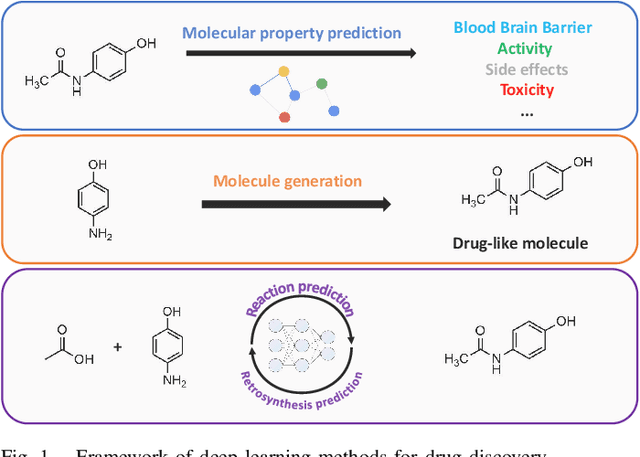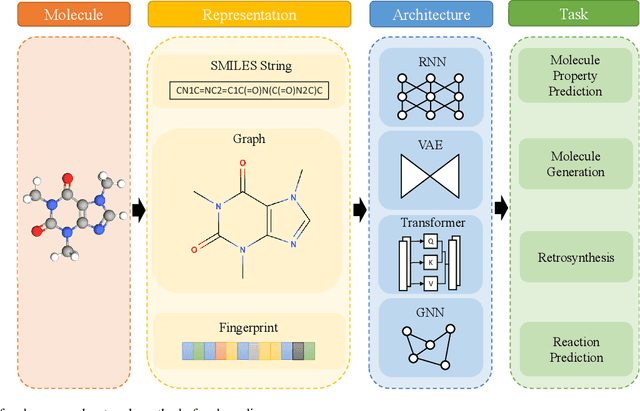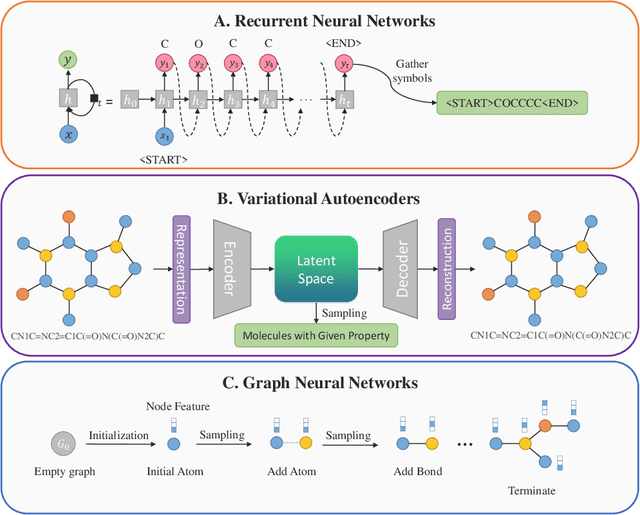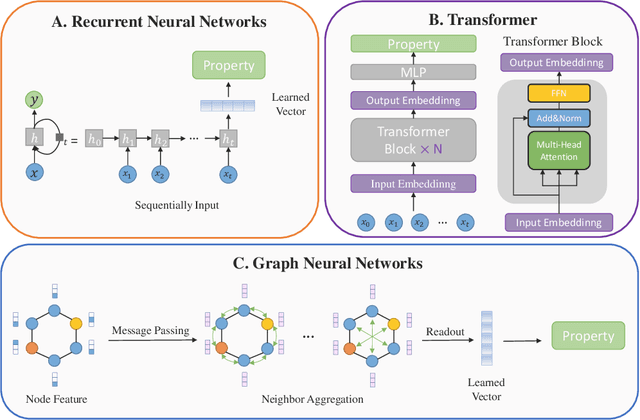Deep Learning Methods for Small Molecule Drug Discovery: A Survey
Paper and Code
Mar 05, 2023



With the development of computer-assisted techniques, research communities including biochemistry and deep learning have been devoted into the drug discovery field for over a decade. Various applications of deep learning have drawn great attention in drug discovery, such as molecule generation, molecular property prediction, retrosynthesis prediction, and reaction prediction. While most existing surveys only focus on one of the applications, limiting the view of researchers in the community. In this paper, we present a comprehensive review on the aforementioned four aspects, and discuss the relationships among different applications. The latest literature and classical benchmarks are presented for better understanding the development of variety of approaches. We commence by summarizing the molecule representation format in these works, followed by an introduction of recent proposed approaches for each of the four tasks. Furthermore, we review a variety of commonly used datasets and evaluation metrics and compare the performance of deep learning-based models. Finally, we conclude by identifying remaining challenges and discussing the future trend for deep learning methods in drug discovery.
 Add to Chrome
Add to Chrome Add to Firefox
Add to Firefox Add to Edge
Add to Edge